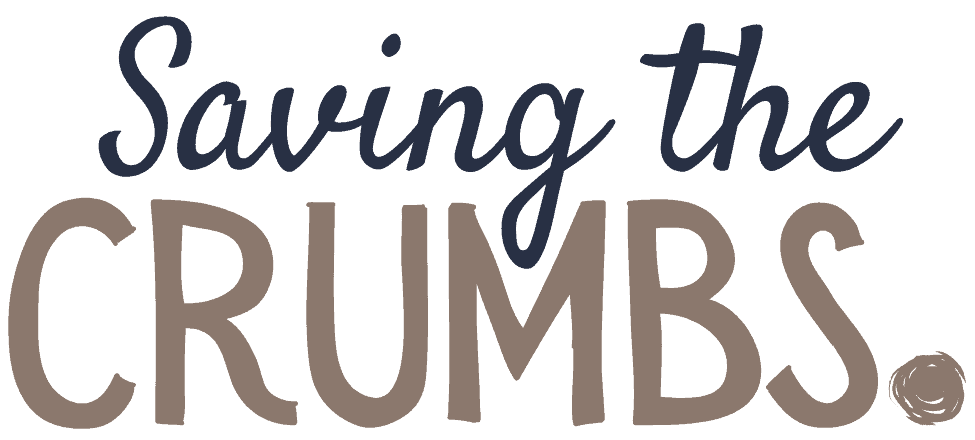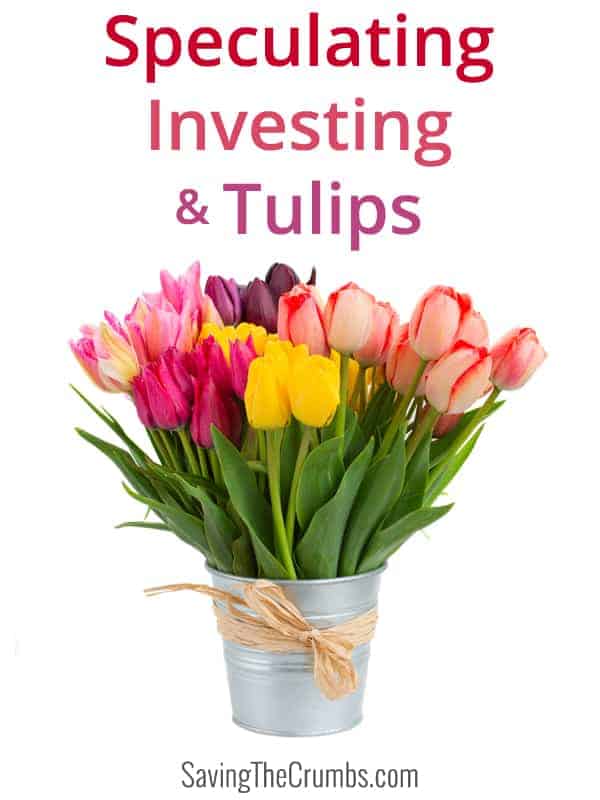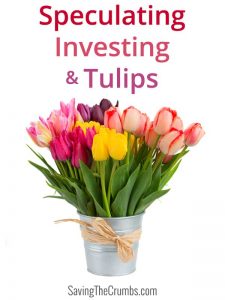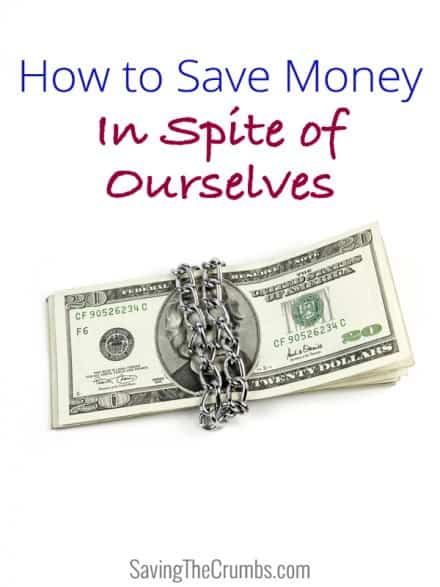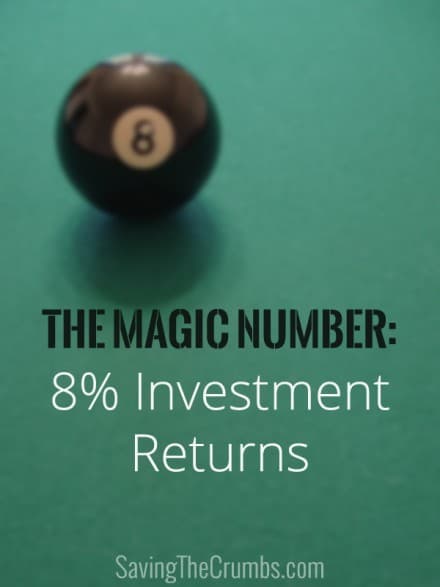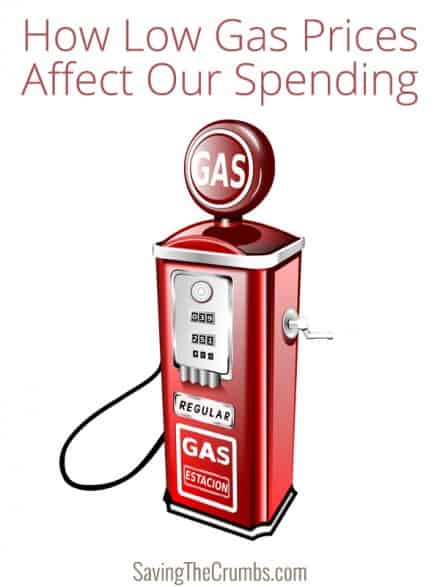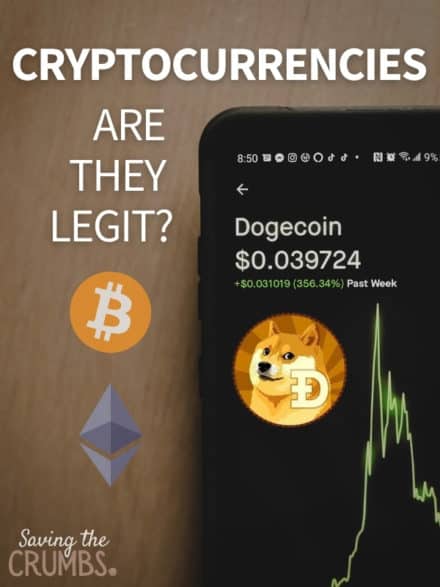Imagine that a friend tells you that there is a huge worldwide demand for tulips and that you can earn a lot of money if you invest in them. You check the news and sure enough, the anchors are breathlessly talking about how the price of tulips is shooting through the roof and how huge fortunes are being made overnight by shrewd tulip bulb investors. People place orders with tulip growers and then turn around and sell those contracts for hundreds of times more than the original cost of the flowers, making money hand over fist without ever laying hands on a single bulb. In fact, you even hear of varieties of tulips where a single bulb sells for ten times the annual salary of a middle-class worker! Ready to invest in tulips?
Actually, you’re probably scratching your head wondering how anyone could get swept up betting on something so silly as tulip bulbs. Amazingly, this is a true story that actually happened in the 1600’s in Holland.* Tulips became such a hot commodity that prices were said to have increased by 1,100% in just one month during the peak of “tulip mania”. The good times came to an abrupt end when prices collapsed overnight. Vast amounts of wealth were lost and the nation was plunged into financial turmoil.
Such is the story of human fascination with the sport called speculation.
As it’s often been said: History repeats. We’ve seen booms and busts like this continuously since the 17th Century, with the 2008 collapse being the freshest in our memories. As a result, I’ve heard people many times express that investing in the stock market is speculative and tantamount to gambling.** With stories like the Dutch Tulip Mania and the 2008 Financial Crisis on our minds, I think this is a question warranting a closer look.
Speculating vs. Investing
Giving a precise definition of speculation is notoriously difficult. When pressed one time Warren Buffett said something to this effect, “Speculation is like pornography…I know it when I see it.”*** In his ensuing comments he offers some helpful insights in how to distinguish between the two that I’ll try to put into my own words here.
Investing is concerned with making a return through the ability of a particular asset to produce value. Speculation is concerned about the price movement of that asset, and not on the underlying productivity of value. In other words, speculation is hoping that someone else will pay more than what you paid for it, whereas investing is looking at how much goods or services this asset will produce over time.
So the key question is: What value does it produce?
In the Dutch tulip mania, what value did a tulip bulb produce? Maybe it had some aesthetic value that gave pleasure to its owners, but was that value commensurate to 10x the annual salary of a working man? Obviously not. Tulip “investors” were simply speculators betting that tomorrow someone will pay $200 (or more!) for the bulb they bought for $100 today.
Here’s another way to look at it.
Suppose you own a farm and every day your neighbor announces across the picket fence how much he’ll pay to buy your farm. How would that affect you? You’d probably wish he was a bit less annoying, but your focus as a farmer would probably be on the quality and quantity of food the farm will produce and NOT the price someone is willing to pay you to buy the farm. If you were speculating, you would sell the farm when the neighbor offers a high price and then buy it back when he’s willing to sell it at a low price, netting a profit. It would trying to make money without regard to the productivity of the farm itself.
Interestingly enough, this is also a perfect illustration for how to think about stock investing.
Aren’t Stocks Speculative?
A stock is simply a partial ownership in a business. A farm is one type of business where its product is food. Instead of growing food, other businesses produce goods like cars, planes, computers, software, clothes, etc., or services like transportation, health care, entertainment, etc. and they earn a profit in return for those things. When you own stock, your ownership entitles you to a proportional share of the profits. THAT is what the investor is interested in—the value produced by the business over time. Investors think like a business owner, not as a baseball card collector. The incessant stock ticker is just noise that’s equivalent to a troublesome neighbor announcing the price he’s willing to pay for your farm. Useful when you’re looking to buy or sell a farm, but not the rest of the time.
So this means that the stock market in and of itself is not a giant casino, it’s simply a marketplace where people can buy shares of businesses from one another. But people CAN utilize the market to engage in speculation. As in so many things in personal finance, the problem doesn’t reside in the “finance” side of the equation, but rather in the “person” side.
In the same discourse referenced earlier, Warren Buffett offers a good test to determine whether you are speculating or investing:
And I say the real test…is whether you care whether the markets are open. When I buy a stock, I don’t care whether they close the stock market tomorrow for a couple of years because I’m looking to the business, Coca-Cola or whatever it may be to produce returns for me in the future from the business. Now if I care whether the stock market is open tomorrow then I say to some extent I’m speculating because I’m thinking about whether the price is going to up tomorrow or not. I don’t know where the price is going to go.
So next time your friend (who recommended you invest in tulips) gives you a red hot stock tip, ask yourself, “Does this friend have a better investing track record than Warren Buffett?” If the answer’s “No”, just remember that even Warren Buffett himself says he can’t predict the prices of stocks tomorrow. He doesn’t care if the market is open or closed, he just cares about the productivity of the business he owns. If “Yes”, then shoot me an email and introduce me to your friend.
When Investments are Speculative
So let’s get a bit more specific, shall we? Here’s a quick and dirty list of some popular “investments” that are actually speculation:
- Commodities. This is purely betting on the price action in the future of some particular substance like oil, corn, soybeans, and tulips. Remember Tulip Mania?
- Collectibles. Sorry if you bought your Tickle-Me Elmo or Beanie Baby thinking that it was a good investment, it’s pure speculation.
- Currencies. Foreign Exchange (Forex) is big business and I know people who make loads of money from it, but it’s still speculating. The guys who succeed at trading currencies do it as a job. Not for mere mortals like you and me.
- Bitcoin. This is simply a type of digital currency (cryptocurrency) that doesn’t produce anything. You’re betting on the price action over time and counting on your ability to predict the future. No thanks. (I’ll say though, that I’m not knocking bitcoin as a technology or digital medium of commercial exchange. I actually think it’s a pretty slick solution in many ways, I just think it’s speculative as an investment.)
- Precious Metals/Stones. People have gone gaga over shiny metals and rocks for as long as man has walked the earth. They have aesthetic value for some people and some may even have industrial uses too. However, the fact remains that they’re not very productive. They’re pretty and the hope is that someone will think it’s prettier than you and will pay you more than what you paid for it in the future. Yes, and I’m even talking about gold. (Don’t believe me? Check out what Warren Buffett had to say about gold as an investment here: Why stocks beat gold and bonds.)
My Summary
- Speculating isn’t Investing. Do people make money by being traders/speculators? Sure. Some (not all) traders can hack it and make money, but it takes a great deal more training and effort than most of us are able or willing to give to it. By that point, it’s become another job or at least a very serious hobby. In my book, investing is for my money to work FOR me, not for me to work even MORE for my money.
- Stocks Do Not Equal Speculation. People can speculate in stocks, but stocks themselves don’t equal speculation. They just represent partial ownership in a business. Just because you’re a business owner doesn’t make you a speculator. It has more to do with the person more than the investment vehicle.
- Focus on Productivity. Investors look at the productivity of the underlying asset and not betting on price changes.
- Buy and Hold. I don’t care about what my neighbor’s willing to pay me for my farm, I care about the production of the farm. The longer I own the farm, the more it will produce for me. The ups and downs of the stock market is just noise. As Warren Buffett once said, “Our favorite holding period is forever.”
- Don’t Be Greedy. Underlying so much of speculative behavior is the desire to get rich quick. There’s no such thing, but humans are drawn to this idea like a moth to the flame. Be satisfied with conservative yields, apply the secret ingredient to investing, and don’t stress over missing the flashiest fad investment.
*For more information on Tulip Mania.
**Risk is a necessary part of investing (actually it’s a necessary part of life). There is no such thing as a risk-free investment (even doing nothing is fraught with risk). Simply having the risk of losing money isn’t the equivalent of “speculating.” If that were the case, putting money in the bank would also be speculation because you’re still at risk of losing money. For further thoughts on this, check out our previous post on Investing Risk.
*** For more information on this discussion with Warren Buffett on Speculation and Investing.
